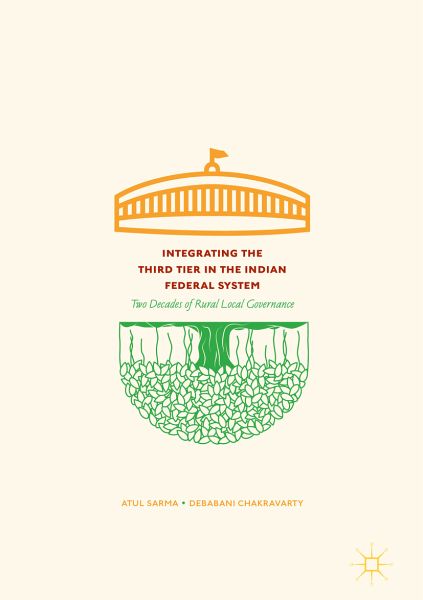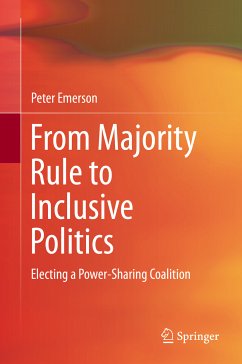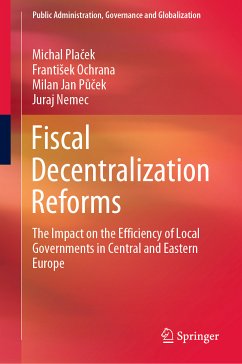
Integrating the Third Tier in the Indian Federal System (eBook, PDF)
Two Decades of Rural Local Governance
Versandkostenfrei!
Sofort per Download lieferbar
40,95 €
inkl. MwSt.
Weitere Ausgaben:

PAYBACK Punkte
20 °P sammeln!
This book discusses the evolution of the third tier of the Indian federal system, with a focus on rural local governance (commonly known as Panchayati Raj) against the backdrop of important theoretical and empirical literature on the relevance and effectiveness of service delivery in the decentralized system. It evaluates the quintessence of the functioning of the Panchayati Raj in the past two decades of its existence.This pioneering book also discusses the treatment of the third-tier government in the inter-governmental fiscal transfer framework and the delineation of the unique institution ...
This book discusses the evolution of the third tier of the Indian federal system, with a focus on rural local governance (commonly known as Panchayati Raj) against the backdrop of important theoretical and empirical literature on the relevance and effectiveness of service delivery in the decentralized system. It evaluates the quintessence of the functioning of the Panchayati Raj in the past two decades of its existence.
This pioneering book also discusses the treatment of the third-tier government in the inter-governmental fiscal transfer framework and the delineation of the unique institution of local self-government in the Northeastern Indian States.
In the light of the loosely evolved fiscal relations between three levels of government, it has been observed that local self-governments in the bottom tier have not been truly empowered yet. The book argues in favor of integrating the third-tier government into the Indian federal system and suggests how this could be achieved.
This pioneering book also discusses the treatment of the third-tier government in the inter-governmental fiscal transfer framework and the delineation of the unique institution of local self-government in the Northeastern Indian States.
In the light of the loosely evolved fiscal relations between three levels of government, it has been observed that local self-governments in the bottom tier have not been truly empowered yet. The book argues in favor of integrating the third-tier government into the Indian federal system and suggests how this could be achieved.
Dieser Download kann aus rechtlichen Gründen nur mit Rechnungsadresse in A, B, BG, CY, CZ, D, DK, EW, E, FIN, F, GR, HR, H, IRL, I, LT, L, LR, M, NL, PL, P, R, S, SLO, SK ausgeliefert werden.












